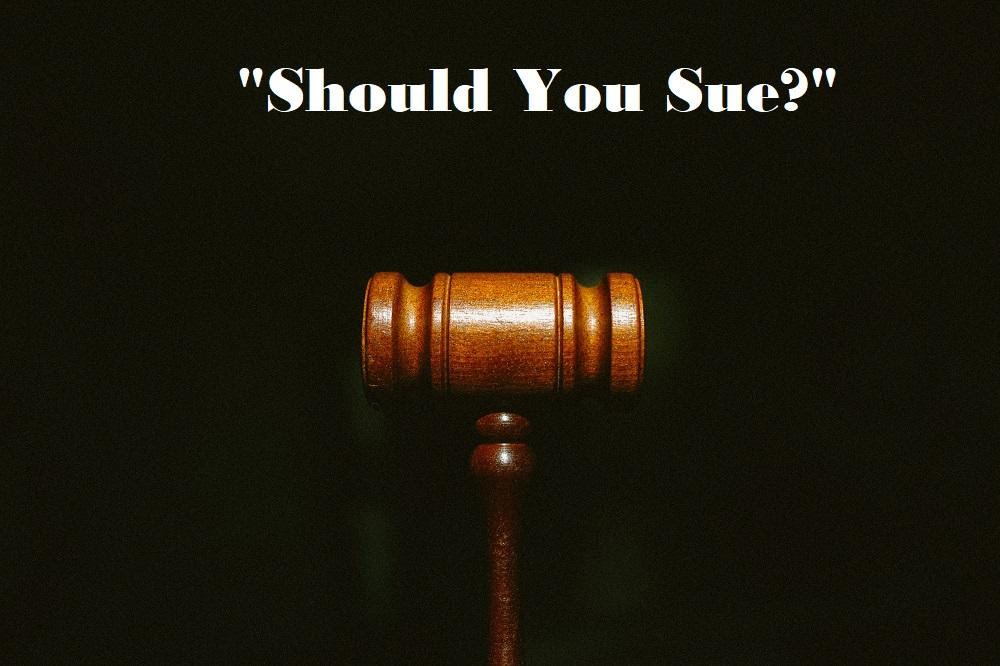You’re angry. Your employer fired you, or your neighbor plays loud music every day, or you slipped walking into the grocery store. Should you sue?
Maybe not.
Before filing a lawsuit, there are a number of things you should think carefully about, including these risks.
1. No matter how good your case appears to be, you might lose.
2. Even if you win, you might not be awarded everything you asked for.
3. Litigation is expensive. Even if you win, you may spend more on attorney fees, expert witness fees, deposition fees and other costs than the amount in controversy.
4. Litigation is time-consuming, and you will not be compensated for the time you spend communicating with your attorney, preserving evidence, testifying or otherwise participating in the litigation.
5. In most cases, you won’t have your attorneys’ fees reimbursed, since, in the US, unless there are special statutes or contractual provisions, you are responsible for your attorneys’ fees even when you prevail in the lawsuit.
6. Even if you have a basis to request reimbursement of your attorneys’ fees, the court may refuse to award some or all of the requested fees. Further, there may still be some types of fees and costs that are not recoverable in your case.
7. In the unlikely event that you are awarded punitive damages, some states require that a significant percentage of those damages be paid over to the state. In Oregon, the state gets 70% of any punitive damages awarded.
8. If you obtain a judgment, you may not be able to collect on that judgment.
9. If you lose, you might be responsible for the fees and costs of the other party (or parties). That is, you could be responsible for paying your own attorney fees and costs and those of the party (or parties) you sued.
10. Filing a lawsuit could cause those you sued to file counterclaims against you.
11. Suing someone you know (like a family member, friend, neighbor or business partner) is likely to irreparably damage the relationship between you.
12. The opposing party (or parties) may appeal the judgment, and the case could be retried one or more times.
13. Your privacy will likely be compromised, since the opposing party (or parties) have the right to review all documents, photographs, videos, emails, and the like pertaining to the dispute, as well as to ask questions of you and others under oath that relate to the dispute. All documents filed in court will be publicly available.
14. All or some of any amounts you are awarded may be taxed to you as ordinary income.
15. Courts can impose civil penalties on you and your attorneys for filing a “frivolous” claim as well as for reasons such as failure to cooperate with court orders and destruction of evidence.
16. Many courts expect that it will take years to clear the backlog of cases that have been delayed due to the COVID-19 pandemic.
Despite all of these issues, if you have a good case and are willing to have it litigated, we are willing to assist you with that litigation.
Please feel free to contact us if you need any help resolving a dispute or in deciding whether or not filing a lawsuit might be a good idea in your particular situation.
Photo by Tingey Injury Law Firm on Unsplash






